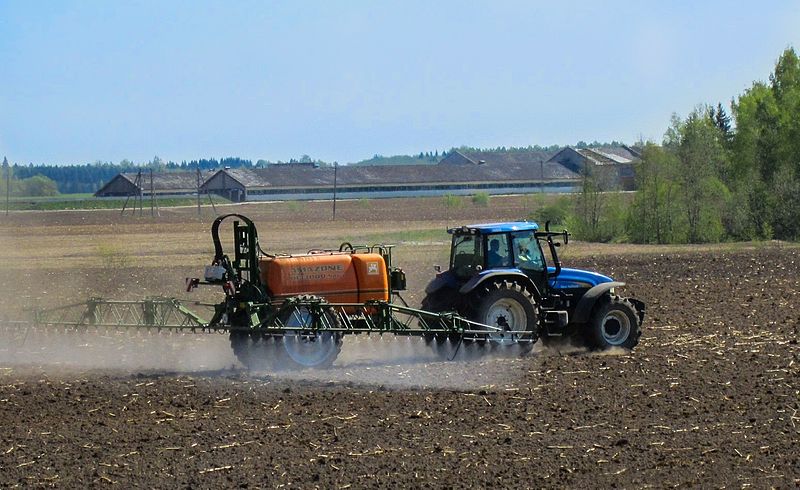Another Loss for the GMO Industry

When genetically modified (GM) seeds were introduced decades ago, we were promised a whole range of wonders: more nutritious food, better flavour, crops that wouldn't need pesticides and herbicides. What did we get instead?
Today, most GM crops on the market are simply designed to be compatible with the seed companies' own herbicides (e.g. Roundup). According to our friends at CBAN, herbicide use has increased almost 2½ times since the mid-1990s because of GM crops. Improved nutrition and flavour are not on the menu.
The idea of "herbicide tolerance" is that the seeds (corn or soy beans for example) are genetically modified to be immune to the companys' herbicides, which can be sprayed on the field killing all weeds but leaving the crop unharmed. However, some weeds have a little natural immunity of their own, and when they're the only weeds left standing they create a whole new weedy generation that's resistant to the herbicide. Everyone knew it would happen - it happens with antibiotics, and it happens with herbicides too. GM cropping has essentially bred a continent-wide population of Roundup-resistant weeds.
Glyphosate and genetically engineered glyphosate-tolerant crops are reaching the end of their life cycle due to the emergence and spread of glyphosate resistant weeds. With no new herbicides on the horizon, the seed and pesticide industry is encouraging farmers to use other herbicides and to adopt new GM crops that are tolerant to the other herbicides such as 2,4-D and dicamba. GM herbicide-tolerant crops are now most often “stacked” with multiple GM traits for tolerance to many herbicides at once, including glyphosate.
The chemical/seed industry's solution is to create new GM crop varieties that are designed to be resistant to multiple herbicides at the same time. You can spray them with glyphosate, which leaves the crop unharmed and kills all the weeds except for the resistant ones. You can also spray them with other herbicides such as 2-4D, or dicamba, and the crops miraculously survive but the weeds die, even the glyphosate-resistant ones. The problem is, that means even more herbicide use, and those other herbicides are a lot messier than glyphosate ever was.
Believe it or not, Roundup was once portrayed as a good environmental choice because although it's a toxic herbicide, it's a lot less of a problem than others. Dicamba, for example, is a herbicide that was introduced in the 1960s but suffered several decades of criticism because of its tendency to vaporize and drift in the air causing damage to neighbouring crops and wild areas. Glyphosate (Roundup) essentially replaced older herbicides because it was reliable, more stable, and in many cases less toxic than the herbicides of the 1960s. Not that glyphosate doesn't have it's own problems.
But now that Roundup is losing its punch, are the old-style and more dangerous herbicides like dicamba coming back?
Maybe not. As more farmers have been using dicamba again, the familiar problems with herbicide drift have been happening more too. Lawsuits have been raised throughout the U.S. by farmers whose crops were damaged by sprays in neighbouring fields, and this month (June 2020) a U.S. federal court decreed that the dicamba-based herbicides sold by Bayer/Monsanto, BASF, and Corteva were unlawful because they had been approved without adequate consideration for the harm to neighbours that they were known to cause. Dicamba herbicides are still legal in Canada, and we'll follow legal proceedings here with interest.
In effect, the vast majority of dicamba herbicide is no longer legal in the U.S., GM crops are quickly losing traction to glyphosate-resistant weeds, and there are few options for the GM crop industry to go forward with its herbicide-tolerance program. This is not a great time to be a multi-billion dollar chemical seed corporation.
Maybe they could work on those nutrition and flavour promises after all?
--
Not yet a member?
An annual membership to Seeds of Diversity gives you access to our seed exchange, seed grow-out programs, and our online news.

We depend on donations to do our work.

Thank you for your support!
